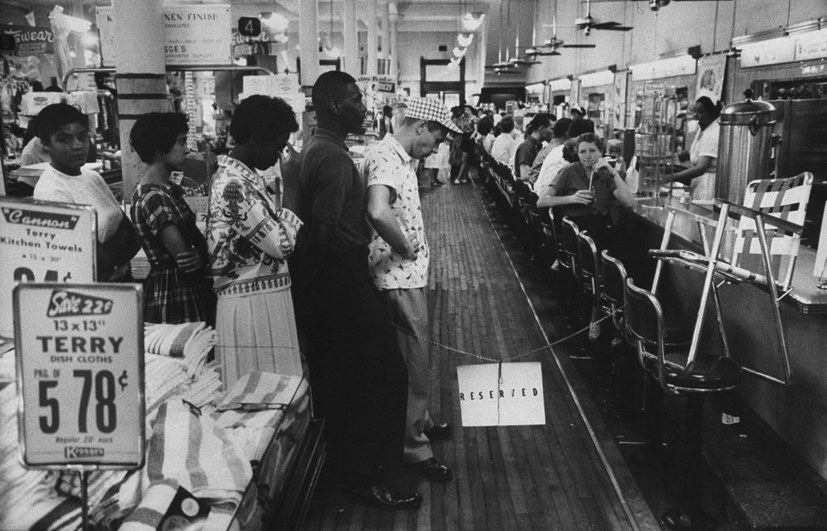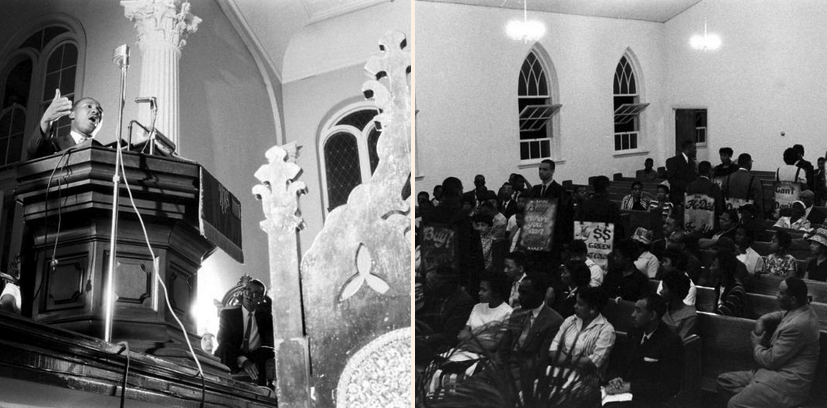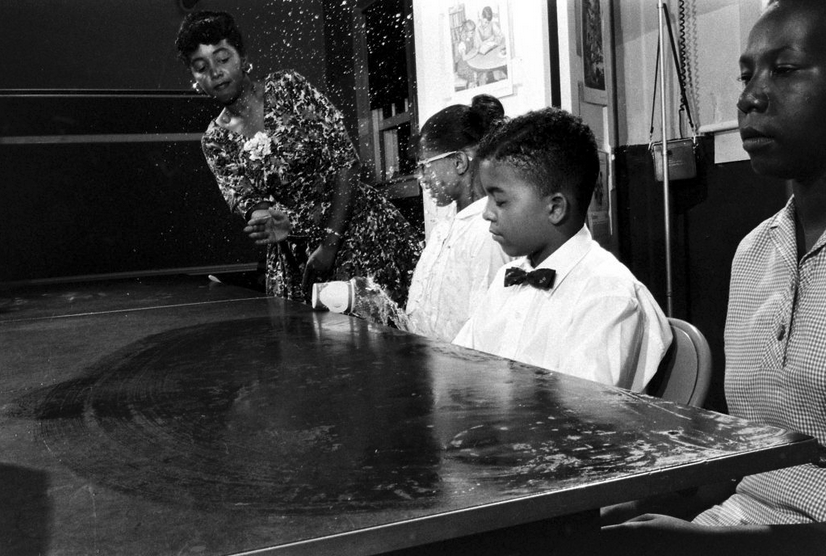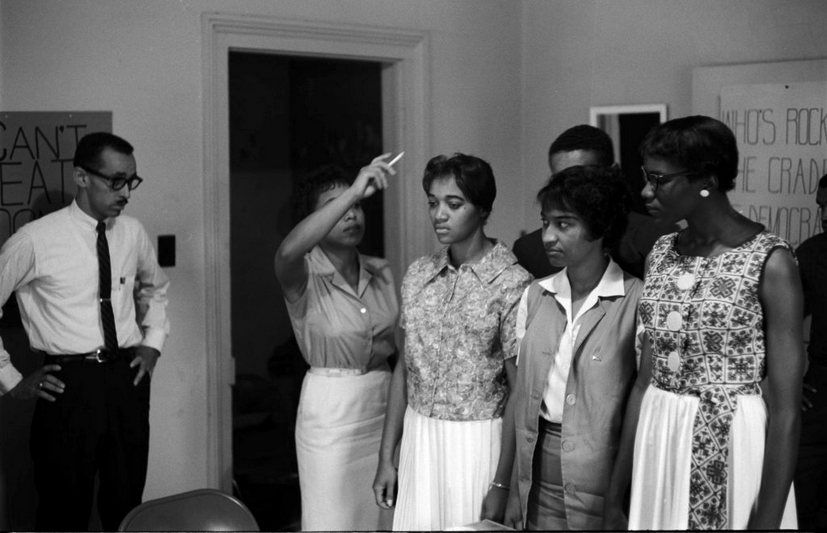This section includes historical pictures of Petersburg during the Civil Rights Movement. Some pictures are hyperlinked to more information.
“In other words, it's like a progression of things..., and not this, "Hey, we've won this, we've won that," and that was because...although there was a legal document saying that we could do so and so, the minds of those individuals [advocating segregation] don't change overnight. And some of them perhaps still haven't after 50 years, but still it was there."
Peggy Lee
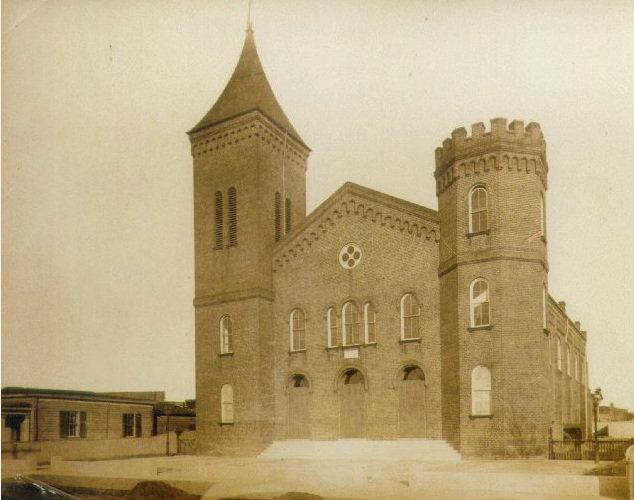
"It was the church. It was the backbone of the community. People had faith that they could carry on and change the segregation thing that was going on and make things better for the city. Churches had a lot of inspiration from the people who came, and even people who weren’t churchgoers were really involved in these situations. They were making them better as people in the city."
Willis Brown
"And of course, during the Civil Rights Movement I remember the first time Martin Luther King came to Petersburg, and I was working at Central State and that snowy night, my husband went to it. But I was sick, so I missed that first mass meeting that they had. But they went through that snow...and I can remember how he came home, just so enthusiastic and so happy and so pleased and talked about everything. And so I have that very vivid memory."
Dr. Florence Saunders Farley
"We sat at the counter. We hardly batted an eyelash. We looked at the mirrors across from us. We sat motionless. And I won't say emotionless because emotions were running high. I'm positive of that. The manager, a male, directed us to get up. We continue to look straight ahead. He went towards the other end because we had occupied all those swivel bar stools. And he said "All right." He came back behind me towards my right and came out of a side door with a heavy black chain. I can hear the sound of that chain as he looped the chain one by one around the backs of each chair, and I knew he was coming to my chair, my seat. Again, I sat there without saying anything. I didn't cry for my mother and dad. I didn't hear anyone else crying for mother...And as he looped the back of each chair, it was as though he wanted to say, "Okay, I got you now. Now what are you going to do?"
Ann Jackson-Ellison
"Martin Luther King came to Petersburg on a number of occasions and, of course, spoke here. Ultimately, he invited Wyatt Tee Walker to come with him because I think he felt he was an individual who could get some things done. So--and there were some other persons who were working with us in the Petersburg Improvement Association and working with Wyatt Tee who also left to go to some phase of Martin Luther King's Southern Christian Leadership program. And I think all of that took place because it was obvious that Petersburg at that point at least was on the move, and the organization had taken place in such a way that things had begun to happen in terms of picketing, and the sit-ins, and the library situation, and it just--it began to expand. So you know, from that, from that perspective, I feel that Petersburg was a major part of the total struggle."
Hermanze Fauntleroy

"And what happened was, I will never forget it, it was on a Saturday afternoon, and the library hours on Saturday were from 9:00 to 1:00. So we stayed until about 12:30 because the librarian upstairs, she called the city manager, and he suggested that they would close the library for that particular day. We weren't arrested at this particular time. Just they closed library. [But] on our second visit we were arrested. And then they had a city council meeting on March 1st, 1960, and they only had three people representing the city council, and they were all white. And they voted unanimously to have the library closed until, you know, it was resolved."
Ernest Shaw

